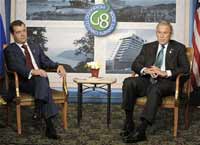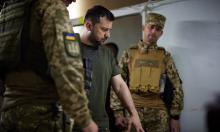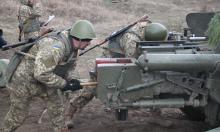Bush describes Medvedev as 'smart guy' on Japan’s Tanabata
Presidents of Russia and the USA intend to develop relations despite current discrepancies between the two countries. George Bush and Dmitry Medvedev held a press conference after the bilateral meeting within the framework of the G8 summit, which opened Monday in Japan.

The global price growth is the key subject on the agenda of the summit. Dmitry Medvedev in his turn offered to conduct a reform of the Group of Eight and include several other countries in the club.
The Russian president said that he hoped for a dialogue with the USA on such complicated issues and the European security and the missile defense system.
“I think that our relations will be developing both with the current administration and the new one. There are questions on which we are achieving progress – Iran and North Korea, for example, and there are questions on which there is no progress at all – the air defense, the European security and some others. We can agree on all of those issues if we want to. It is comfortable for us to work with George, and I hope that it will remain like this with those who will replace the current US administration,” Dmitry Medvedev said.
The three-day summit and a slew of one-on-one meetings will test Medvedev's diplomatic dexterity two months after his inauguration as president.
His solo performance could help the 42-year-old former lawyer emerge from the shadow of Putin, who ensured his protege's election in March by tapping him as his favored successor. The popular former president holds strong influence as prime minister and leader of Russia's dominant political party, raising questions about who is in charge.
Medvedev will be scrutinized for any signs of a break with Putin's assertive foreign policy and often confrontational conduct on the world stage.
So far, Kremlin-watchers have discerned mostly differences in style, not substance. Medvedev himself told journalists from G-8 countries last week "the accents in both domestic and foreign policy will doubtless change" - but in the same breath suggested the differences would be mere "stylistic shading."
And while Medvedev's milder manner has apparently appealed to Western leaders accustomed to Putin's in-your-face style, he has stressed that in practice he will protect Russia's interests no less fiercely.
He has echoed Putin's criticism of the West, in particular the United States, and has no sign of softening opposition to bugbears of Putin, such as U.S. plans for missile defense facilities in Europe and NATO's promise to eventually invite Georgia and Ukraine in.
Bush called Medvedev a "smart guy" who understands the issues. But the U.S. president would not go so far as to say he got a sense of Medvedev's soul, as he once famously said of Putin after their first meeting.
"I'm not going to sit here and psychoanalyze the guy," Bush said after his first sit-down with Medvedev since the Russian president took office. "He's comfortable and competent, and I believe when he tells me something, he means it."
The two leaders emphasized there were issues of agreement between their countries - such as dealing with North Korea and Iran - but also areas of disagreement, such as U.S. plans for a European-based missile shield.
The beginning of the G-8 summit coincided with one of Japan’s biggest traditional holidays known as Tanabata. Organizers of the summit believed that the G8 leaders must also take part in the traditional ceremony.
In present-day Japan, people generally celebrate this day by writing wishes, sometimes in the form of poetry, on tanzaku, small pieces of paper, and hanging them on bamboo, sometimes with other decorations. The bamboo and decorations are often set afloat on a river or burned after the festival, around midnight or on the next day. This resembles the custom of floating paper ships and candles on rivers during Obon. Many areas in Japan have their own Tanabata customs, which are mostly related to local Obon traditions.
AP photo
Subscribe to Pravda.Ru Telegram channel, Facebook, RSS!



